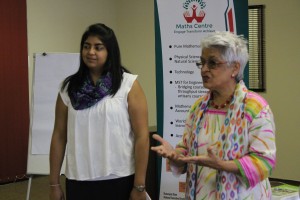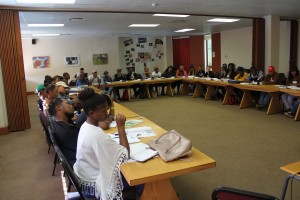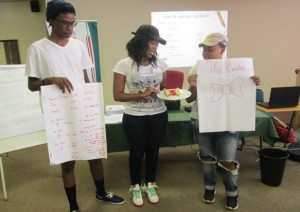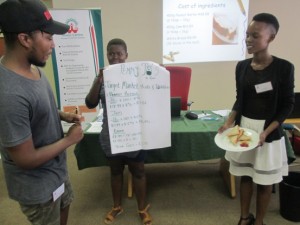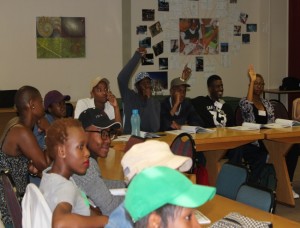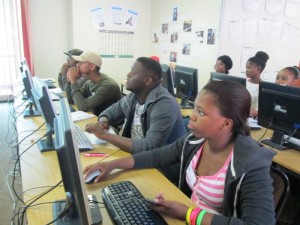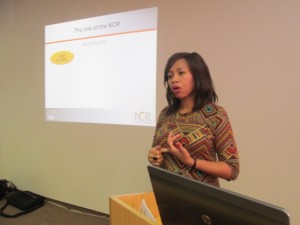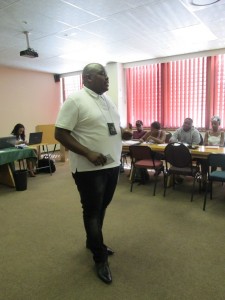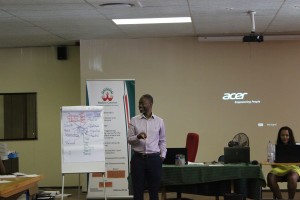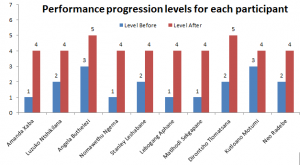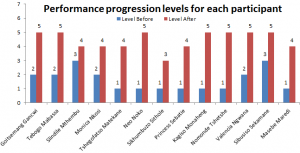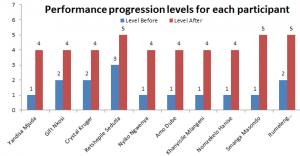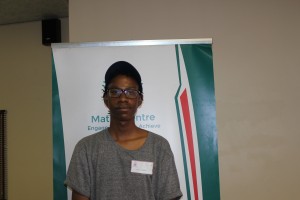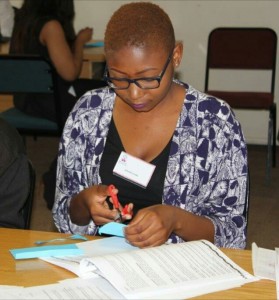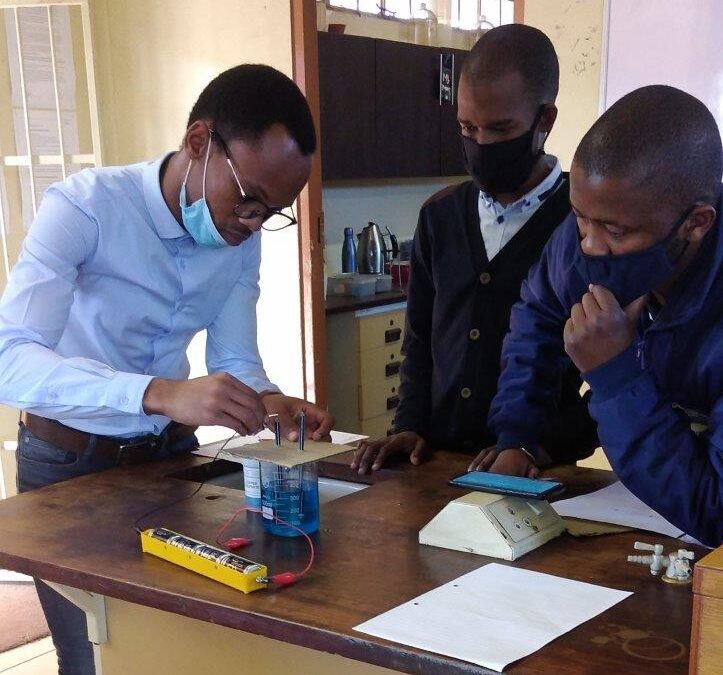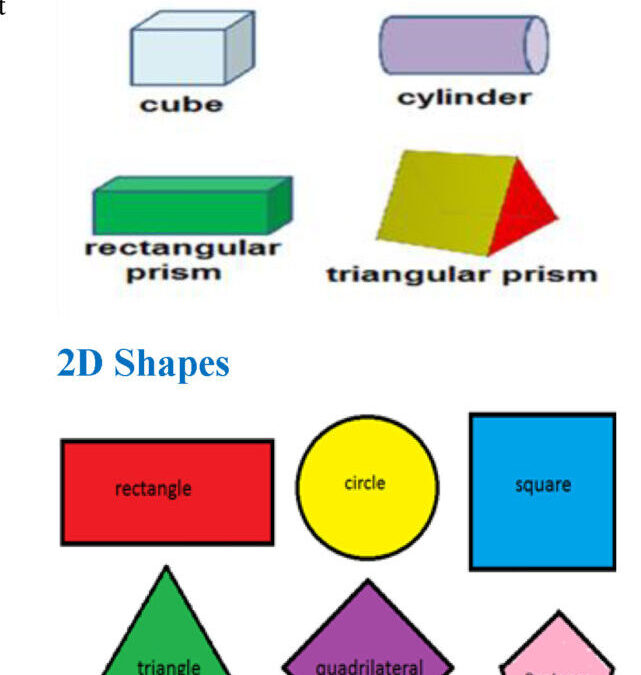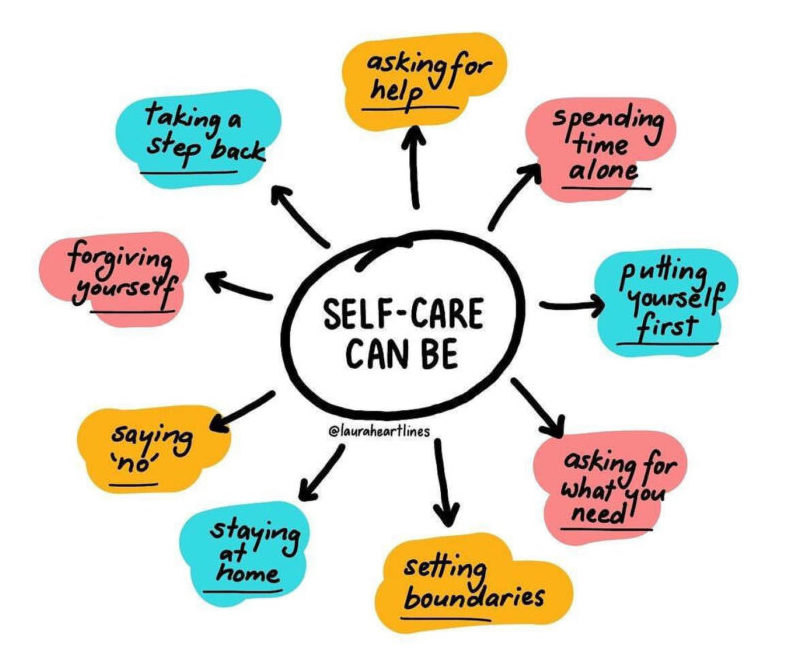Trencon 5 Day Entrepreneurship: November 2016
From the 7th to the 11th November 2016 The Maths Centre hosted the Trencon Entrepreneurship Training programme . The training project targeted unemployed out of school youth in the Gauteng Province.
The project
Trencon Construction funded MCIS to empower out of school youth towards economic independence through entrepreneurship education. A 5 day entrepreneurship training programme was to be conducted with 20 unemployed youth that were interested or had a startup or a business. MCIS invited different stakeholders to offer their professional business acumen and business support.
The Maths Centre director Sharaanjeet Shan and Ms Singh from Trencon welcoming the trainee’s.
Selecting Training Participants
The project was targeted for out of school youth between the ages of 18 and 22. Participants were recruited from disadvantaged communities where the entrepreneurial need existed. Participants came from informal settlements, townships and the suburban areas around the Gauteng province. Half of the participants were sourced from the SANCO database, an organization that is actively involved in mobilizing communities against poverty and inequality in different communities of Gauteng. Other participants came to know about the project through word of mouth and were keen on participating.
The project funding was for 20 out of school youth, but due to the high levels of unemployment amongst the country’s youth, and the demand for youth seeking assistance in any form of training and improving their hopes of finding employment, the Maths Centre could not turn down the youth and the training participants went to 33 seeking training.
The Maths Centre’s training room was a full house.
Participants presenting their Product Costing activity(left) and explaining the cost of the sandwich shop task(right)
Entrepreneurship manuals and various stationary’s were distributed to each participant
(LEFT) Participants during a discussion and (right)Participants were given an opportunity to search for other entrepreneurial opportunities
The 5 Day Training Programme
| Day 1
1. What is an entrepreneur? 1.1 Difference between an employee and an entrepreneur 1.2 How entrepreneurs create value from scarce resources 1.3 Evaluate the pros and cons of creating your own business 2. Characteristics of a successful entrepreneur 3. Power of positive thinking 4. Recognizing opportunity 5. Selecting your business 5.1 Service business/Selling a product |
Day 2
1. Inventions and product development 1.1 Increase your creativity 1.2 Practice lateral thinking 1.3 Practical daydreaming 1.4 Product development 2. Income Statements 3. Two guest speakers: Mr. Mahlatse Mathole (Maths Centre H.R manager) ·
|
Day 3
1. Return on investment (ROI) 2. Marketing 3. Cost and benefit analysis 4. Introduction to the Business plan 5. Guest from National Credit Regulator
|
| Day 4
1. Continuation on Business plans 2. Business Communication 2.1 Time is money 2.2 Time management 2.3 Tools of Business communication 3. Guest from S.A.R.S. · Mr. Mathole
|
Day 5
1. Micro-economics 2. Business Communication & Ethics 3. Computer lab
|
Topics covered
| Entrepreneurship Training |
| 1. What is an entrepreneur? |
| 2. Characteristics of an entrepreneur |
| 3. Power of positive thinking |
| 4. Opportunity recognition |
| 5. Selecting a business |
| 6. Income Statement |
| 7. Return on investment |
| 8. Inventions and product development |
| 9. Cost of starting and operating business |
| 10. Advertising and Publicity |
| 11. Cost and benefit analysis |
| 12. Market Research |
| 13. Competitive advantage |
| 14. Negotiations |
| 15. Consumer analysis and developing your marketing mix |
| 16. Forms of ownership |
| 17. Technology |
| 18. Business Communication |
| 19. Business Ethics |
Guest speakers
Ms Phumla Trolly, from N.C.R. (top left), Mr Bandile Holweni from S.A.R.S(top right) and Mahlatse Mathole the Maths Centre’s Corporate services manager(bottom left)
Performance progression for each participant – details of strengths and weaknesses
From the above Graphs it is evident that the participants’ knowledge of entrepreneurial concepts was limited. Concepts such as cost analysis and break- even were unknown to them. During the training these concepts were explained and participants gained a better understanding of how to use certain terminology in the entrepreneurial context. The mathematical ability of participants was below 30%, and participants struggled with cost calculations.
Findings
30% of the participants had a business, and the training assisted in growing their entrepreneurial mindset, knowledge and skills. Empowering them to grow their business and become creative with expansion ideas. They learnt effective communication as businessmen and women and to become effective leaders in their business and community. Participant’s interacted with different speakers and stakeholders that contributed to the training and gained information that was valuable to their business. A clear differentiation in the ability levels of participants was noted. The participant that come from an affluent background and attended multiracial schools had a higher level of confidence and was proficient in the English language as opposed to their counterparts from the townships. Many learnt that reading and gaining knowledge via social media was imperative for an upcoming business leader.
Way forward and follow up
Follow –up sessions will be held with participants, at each session there will specific tasks that should have been completed by each participant.
Gaps identified during the course:
- Financial Literacy
- Effective Communication
Project tracking and sustainability
Project tracking and sustainability is outlined in Appendix 1 below. Participants have formed a WhatsApp group with trainers to track their progress on a regular basis and are free to ask for business advice and chat with other participants on entrepreneurial matters.
Feedback from trainee’s:

“I thought we were going be trained text book style, but the training exceeded my expectation. I was taught about SARS, paying taxes and how to draw up my own business plan”
Monica Nkosi
“As an aspiring entrepreneur i have learnt that mentoring,networking and having curiosity play a huge role in growing a business”
Luzuko Ntshikilana
“My objectives included getting perspective about entrepreneurship and training on how to get my own business off the ground. I am happy to say they were met”
Tshegofatso Matekane
“The biggest lesson i have learnt so far is that the mind has power, it all starts in the mind”
Amogelang Dube
”My objectives were met! I learnt that the outcome at any situation can be a tool in future success. My mind is the determining factor”
Nyiko Ngwenya
“The biggest lesson i have learnt from the training is that i should be disciplined and focused. it is important to know what is it really that i want and that am able to achieve anything through hard work and dedication”
Amanda Xaba
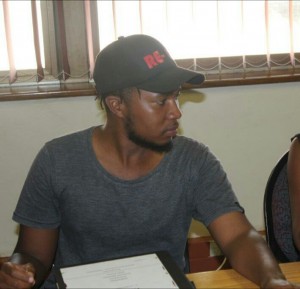
”Creativity, persistence, differentiation and vision are a few of the important values”
Itumeleng Makhafola



